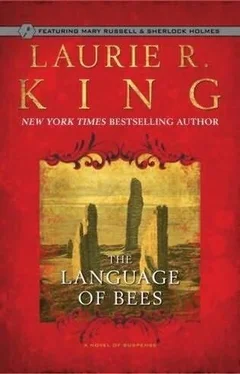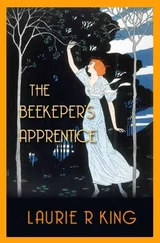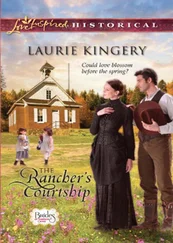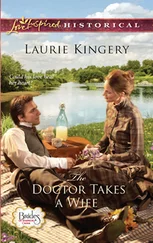I studied him. I had known Holmes to be unscrupulous, even cold-hearted when it came to manipulating others for the sake of an investigation, but this was personal. Frankly, I hadn't thought him capable of that.
Except, perhaps, to protect me.
And now, Damian.
I did not like it: Holmes had been known to act as judge, jury, and very nearly executioner, but never had he done so without cost to himself.
He put down his half-empty cup and examined it minutely. “He has nightmares. Damian. Night after night he wakes, drenched in sweat, shivering. He must have the lights on, needs the windows open wide, even in the winter. From his words, and from his art, I believe he dreams of trenches whose walls are crumbling in on him. Of being at the bottom of a well, looking up at a circle of stars. Of being in the hold of a ship and hearing the scrape of collision. Of being buried alive in a casket.
“The key element is enclosure. A horror of being closed in, locked up, kept from the sky. I believe it may be why he so often paints the sky.” He sighed, and dry-scrubbed his face. “Russell, Damian Adler is a damaged man on a solid foundation. His wife's death will threaten everything he has built. If his daughter is gone as well, I do not know if he will recover. Locking him away would guarantee that he does not. If he is arrested, I fear for his sanity. And they will arrest him, if they find him. I must maintain open communication with Lestrade so I know what they are doing, and so I can find Yolanda's murderer for them. Because you know that Scotland Yard will not look beyond Damian.”
I said nothing; he raised his eyes to mine. They were set with unwavering intent.
“Damian did not kill his wife,” he said flatly.
“Holmes, you can't-”
“I must. He did not kill her. Yes, he is capable of killing-which of us is not?-but not this murder. Not a cold-blooded slaughtering of his wife and his child.”
I looked into his grey eyes, and slowly nodded. “All right.”
The tension seeped out of him, and he got up to retrieve the parcel he had left beside the door. As I watched him cross the room, I reflected that in any other man, the relaxation would have been from relief, that he had talked his wife into agreement.
I knew him too well to think that. Tension in Holmes was not the sign of a disagreement with others-even me-but with himself. I must , he'd said. He had to believe that his son did not do this dreadful thing, and I, for the moment, had to go along with that decision.
But that did not mean I had to believe it as well.
He put the flat package on the table in front of me. “I hadn't time to fetch the book you wanted. We'll go back, when the police are no longer in possession.”
This, too, was a book, wrapped in brown paper and bound in twine. The twine had been cut and re-tied, the paper inattentively wrapped; faint indentations on the paper suggested that it had sat for weeks, if not months.
It was a beautiful volume, leather-bound and tooled with gilt with the name Damian Adler on the front.
When I opened the book and saw what it contained, I knew why it had taken Holmes so long to return to Mycroft's this evening.
“Did he tell you about this?” I asked.
“He never mentioned it. I expect he had it made some time ago, intending to send it to me when we returned.”
“And he would hardly bring it with him to Sussex, considering why he came.”
“No.”
It was a book of Damian's sketches and watercolour paintings, mounted and magnificently bound. None was larger than eight inches by six; some were intricate pen-and-ink drawings, others leisurely pencil outlines. The watercolours had a wistful, autumnal air to them, even those clearly showing spring. None of the pieces had moons or trenches; none of them was done in the style he used now. One watercolour of Irene Adler in a garden chair was stunning.
“What is this cottage he's done several times, the one with the pond in the garden?”
“His mother's house, outside of Paris in Ste Chapelle.”
“Where he was born.”
“Yes. I went to see it that day, after we'd seen him in gaol.”
I turned the page, and recognised the ivy-draped face of the Ste Chapelle gaol. A tall, thin, middle-aged Englishman filled the doorway, his face in the shadows.
I reached the end, and turned back to the first page, considering. On the surface, the book was a son's demonstration to his father of skill and personal history. But there was more to it than that.
Take this first drawing: a portrait of Irene Adler. Holmes' other album also began with her, as a woman beautiful and filled with life; here, she was still lovely, but it was the ethereal beauty of a woman ground down by troubles. She seemed to be contemplating a deep well of sadness within. Had that particular woman ever borne that expression? Had Irene Adler ever been ethereal?
The next sketch, showing a dark-haired little boy on a deserted beach, had a similar air of loneliness to it.
And, looking more closely, the man in the doorway of the gaol was unnaturally rigid, cold amidst the warmth of old stone and luxurious vines.
No: This was not a collection of work brought together to please a father. The paper was the same, beginning to end: Each piece had been done expressly for the purpose of this book.
For what? So that Damian could come home to lay his accomplishment at the feet of a father he hoped to know? Or so he could shove his hard life and his current success into his father's face? The overkill of the book, so ornate the binding nearly overshadowed the art within, made one aware of anger in its beauty.
The book had been designed to make Holmes wince.
I closed the cover and looked at Holmes. He was slumped into the chair, outstretched ankles crossed, eyes shut. This was not the moment to address the question of filial affection.
“Do you really-” I started, but he cut me off.
“He did not anticipate liking me,” he said. “It galled him, to ask for my help, but he put his feelings aside because he loved his wife. Three days in my company changed him. I'm not certain he would have given me that book, in the end.”
“Do you think you can keep Lestrade from finding out that Damian is your son?”
“All it requires is inefficiency and misfiled information. Mycroft can arrange that.”
“I hope you know what you're doing, Holmes.”
One grey eye came open. “My dear Russell,” he said lightly, “I have been deceiving the official police since before you were born. At that art, I am the expert.”
The Elements (2): The man learned to manipulate
the Elements. As his Guide had taught him to control the
weak, now his inner Guide led him in turning the
Elements to his divine will.
Testimony, II:6
WE TOOK OUR INNOCENT FACES TO NEW SCOTLAND Yard bright and early on Monday morning, and were only kept cooling our heels for half an hour before Lestrade came to lead us into his office.
The newspaper headlines that morning had read: Third Outrage in Prehistoric Monuments, with details of Yolanda's death, but not yet her name.
“Mr Holmes,” Lestrade said, his joviality forced, but still a relief: He did not suspect that there might be a link between our presence and the young woman whose search for Yolanda Adler on Saturday had led to his presence on Burton Place last night. “Sorry to have missed you yesterday, I was told you had been by. Did you get the message I left with your brother?”
“I did, although not until late. Has the dead woman in fact been identified?”
“Oh yes,” he said over his shoulder, “there's no doubt. Her husband is missing, and their child.”
Читать дальше












